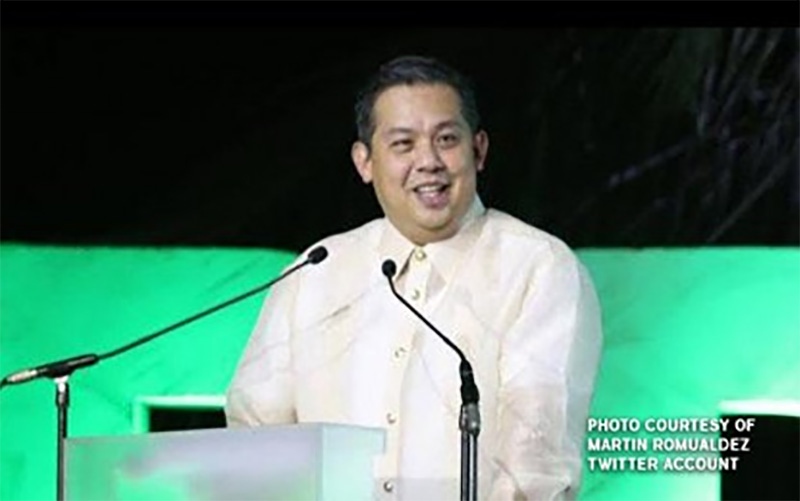PNP chief Guillermo Eleazar yesterday said police will continue to implement strict border inspections in the NCR Plus bubble to control non-essential travels to and from the National Capital Region and the provinces of Bulacan, Cavite, Laguna and Rizal.
Eleazar, in a press briefing in Bulacan, pointed out that the general community quarantine imposed in the NCR Plus still has “heightened restrictions,” including the prohibition against unnecessary trips outside of the borders.
“Travel restrictions is more relaxed within the bubble but people inside are not allowed to go out and those outside are not allowed to go in,” said Eleazar, adding only those in the list of Authorized Persons Outside Residents (APORs) can cross the borders, but such travels should be work-related.
“As long as your travel is work-related, meaning to say you are going to work or going home from work, you can cross without any restrictions. But if your travel is not work-related, even if you are a member of the media for example, you are not allowed to cross,” he stressed.
He said APORs in NCR Plus are now also permitted to cross borders within the bubble to avail of goods and services of permitted industries, which was not allowed when it was under modified GCQ from April 12 to May 14.
He however “highly encouraged” APORs to avail of such services in the local government units where they reside or work.
Cabinet Secretary and Inter-Agency Task Force for the Management of Emerging Infectious Disease co-chairman Karlo Nograles said the COVID-19 pandemic will continue to persist regardless of the imposition of strict community quarantines and health protocols if people will keep on making excuses and disregard government rules.
In an interview with radio DzBB, Nograles said the COVID-19 prevention campaign of the government will only be effective if the public will cooperate and comply with minimum health protocols and quarantine guidelines.
Nograles stressed that “prevention” is important in defeating the virus, especially now that the NCR Plus is under GCQ from May 15 to 31.
“It is in the hands of our fellow men because whatever guidelines we make, regardless of how strict we are, regardless of how we enforce it, if people look for excuses, make excuses, we will have a problem,” he said, citing as example the swimming “party” at a Caloocan resort during the Mother’s Day celebration last May 9.
Presidential spokesman Harry Roque said the limited opening of industries and heightened restrictions were imposed in the NCR Plus because of the presence of COVID-19 variants in the country, especially the double mutant Indian variant.
Roque, in a text message, said the GCQ’s heightened restrictions mean “little re-openings only precisely because of the threat of new variants.”
Over the weekend, the Department of Health reported 12 confirmed Indian variant cases have been detected in the country.
Nograles said the government was not too slow and was not late in the prevention of entry of the Indian variant in the country.
He said that while the government waited for the World Health organization (WHO) actions and guidelines on the latest COVID-19 strain, measures such as subjecting all arriving overseas Filipinos who returns to the country to a strict 14-day facility-based quarantine regardless of their RT-PCR results was observed.
He said those who tested positive of the Indian variant were under isolation when their results came out, and that they were only allowed to go home to their homes after they were cleared by the DOH.
Malacañang has extended the ban on the entry of travelers coming from India, Pakistan, Nepal, Bangladesh and Sri Lanka until May 31. The country also expanded the coverage of the travel ban to include Oman and the United Arab Emirates.
Asked if there will be more countries covered by the ban after the Indian variant was found in 40 countries, Nograles said the Philippines is still waiting for more data and confirmation if there are already local transmission in the countries that were reported to have been affected by the variant.
Immigration Commissioner Jaime Morente said foreign parents of Filipinos still need to secure visa and entry exemption documents even if they are travelling with their children.
He said foreign parents of Filipino citizens are not covered by the Balikbayan privilege, thus they have to apply for an entry visa from Philippine posts abroad.
Morente added that they are likewise required to present an entry exemption document, which may be issued by the Department of Foreign Affairs or the National Task Force Against Covid-19 if they wish to come to the country.
“Those who do fail to present a visa and an exemption document upon their arrival at the airport will be denied entry by immigration officers and they will be booked on the first available flight back to their port of origin,” the BI chief said in a statement. — With Jocelyn Montemayor and Ashzel Hachero





